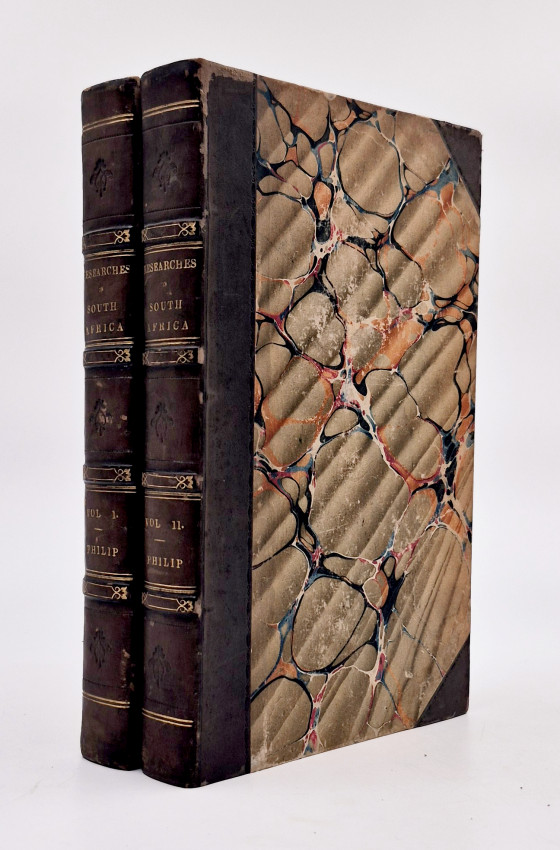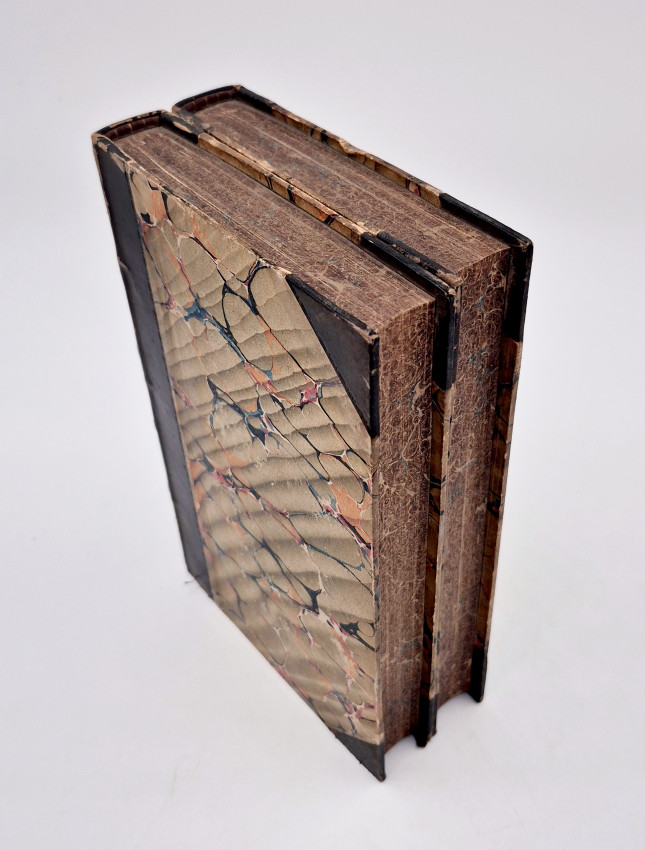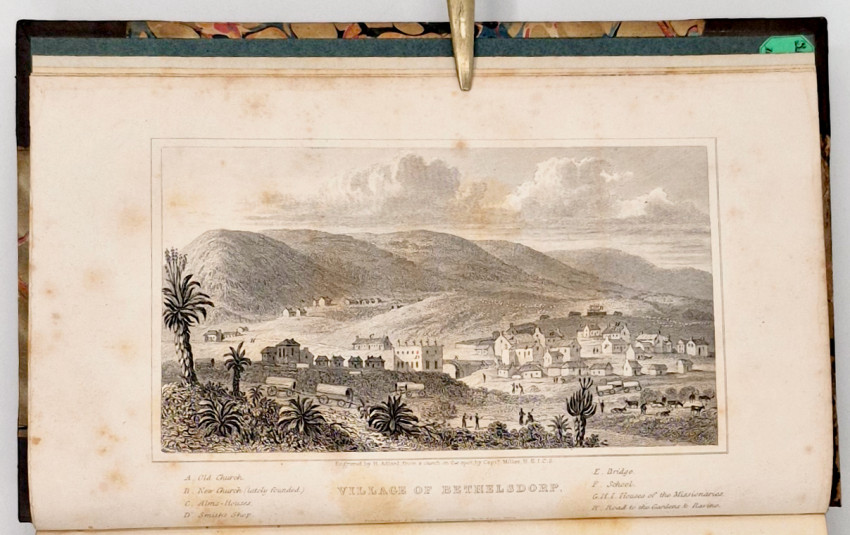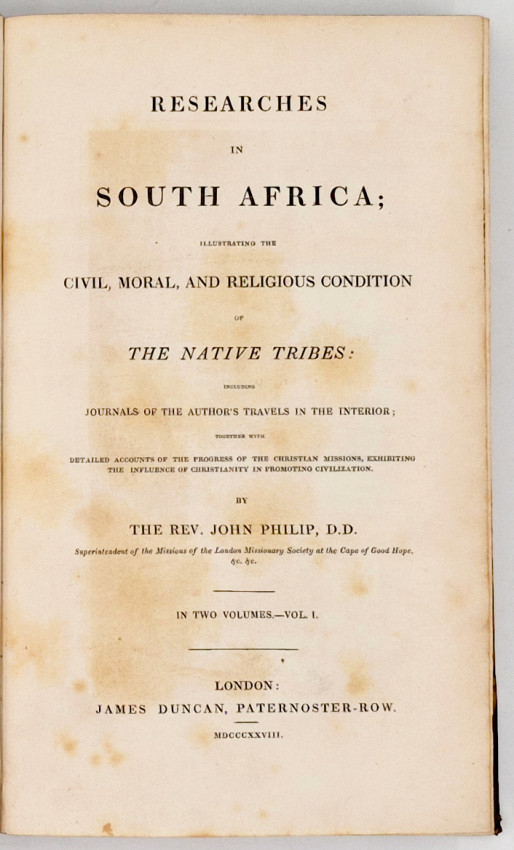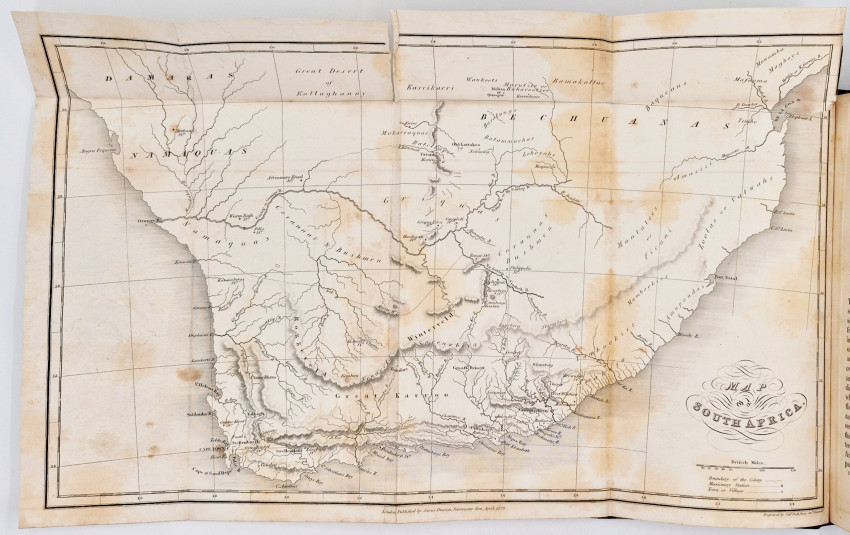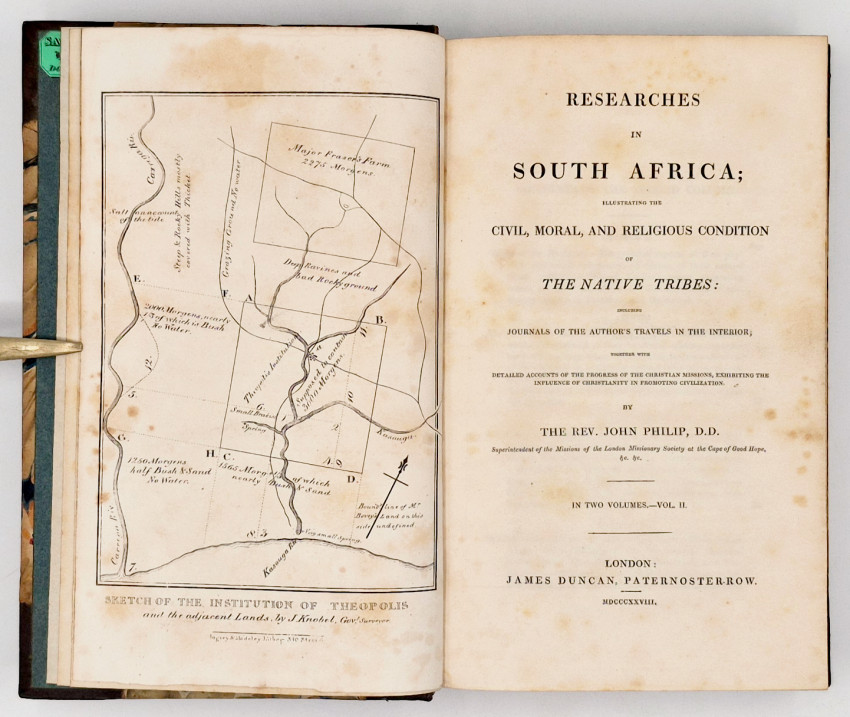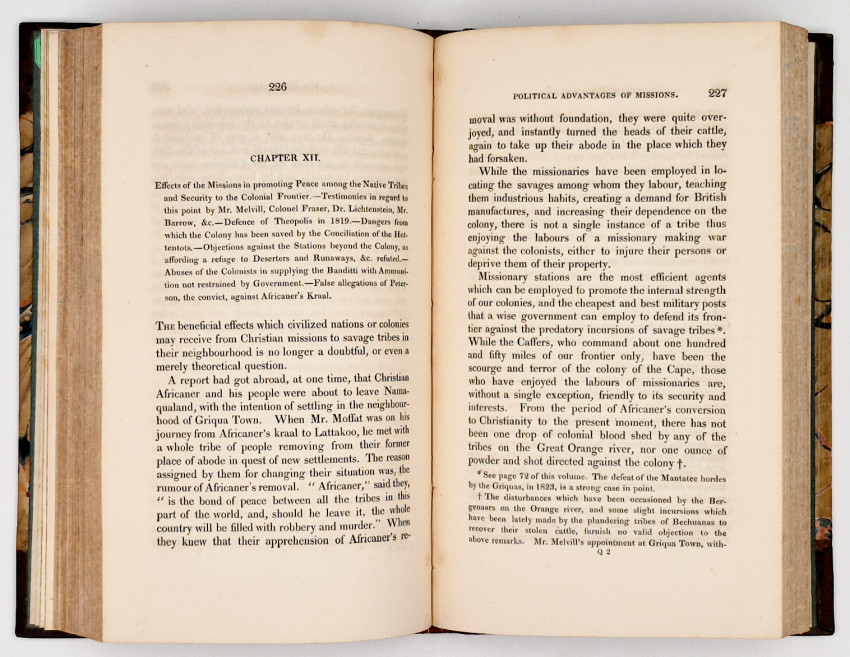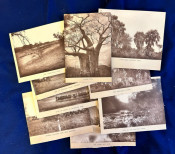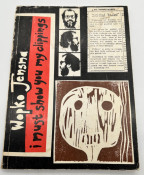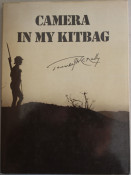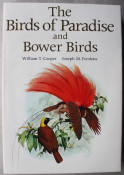Including journals of the author's travels in the interior;
Together with detailed accounts of the progress of the Christian Missions exhibiting the influence of Christianity in promoting civilization in two volumes
First edition: Two volumes: Volume I, xxxv, 403; Volume II, viii, 450 pages, frontispiece in volume I (the village of Bethelsdorp) and folding map as frontispiece to volume II, sketch map of Theopolis in Vol. II, light foxing mainly on the preliminary pages, half calf with gilt titling on the spines, marbled paper sides and edges, a very good set.
Rev John Philip’s horror at the oppression of the Khoi at the Cape, as well as the regular district commando organized killings of the San, led to the writing and the publication of this book. Largely as a result of his findings and the impassioned pleas in the book, as well as his partnership with the likes of William Wilberforce and Thomas Fowell Buxton of the Anti-Slavery Society, Philip gained a tremendous victory in the British Parliament in 1828. As a result, and by way of Ordinance 50 of 1828, it became mandatory in the Cape colony for all of “the King’s” subjects to share the same civil rights. This meant that (in law at least) all races could buy land anywhere, buy a house in any part of town and, when the vote came (in 1852), qualify for it in exactly the same way as whites. It meant equal pay for equal work, at least some integrated schools, and many other things peculiar to the colony, all of which continued until the Union of South Africa was created in 1910, when these freedoms were traded to placate the ZAR (Transvaal) and Orange Free State constituents.
There is a detailed biographical sketch in the Dictionary of African Christian Biography as follows:
https://dacb.org/stories/southafrica/philip-john/
Mendelssohn (Sidney) South African Bibliography, volume 2, pages 161/2; ‘Few books on South African matters have been the subject of such fierce denunciation and bitter criticisms as these volumes. The author proceeded to South Africa in the service of the London Missionary Society in 1819, and soon became a most drastic censor of the methods pursued towards the natives by the colonists, and the policy of the colonial Government with regard to native affairs. His strictures were so severe that the attention of the British Government was directed to the matter, and when, in 1826, Dr. Philip visited England, his views received the careful attention of Lord Bathurst. When the “Researches in South Africa" were published a large amount of public indignation was aroused, and the subject was brought before the Houses of Parliament, considerable changes in the administration of native affairs in South Africa being eventually brought about. Generally speaking, the work was condemned in the Cape Colony as a biased and partial production, and “highly overdrawn statement,” from which many explanatory particulars known to the author were omitted. “The reflections on the officials of the Cape Colon: were bitterly resented, and one of the accused — Mr. Mackay, Landrost of Somerset — brought an action against Dr. Philip for libel. Judgment was given against the author, who had to pay £200 in damages, together with costs amounting to about £900, the Chief Justice, Sir John Wylde, " characterising the statement concerning Mr. Mackay as a ' false and malicious libel,' the two other judges concurring in his condemnation " (Theal, " History of South Africa, 1795-1834"). The
Missionary party in London, however, and a considerable section of the public, regarded Dr. Philip as a martyr to colonial prejudice, and public meetings were held to defray the cost of the case. Despite the extreme views held by Dr. Philip, his charges against the Dutch colonists were upheld by a whole phalanx of writers, from the times of Percival and Barrow to those of Livingstone and even later authors; the instances of exaggeration and inaccuracy quoted against him do not in any very material degree affect the accusations as a whole, although possibly matters may have been omitted which might, to a certain extent, have condoned the brutalities which were stated to have taken place. The volumes afford considerable
information respecting the natives and colonists in the first quarter of the nineteenth century, together with details respecting missionary work in South Africa at this period.’
- Overall Condition: A very good set
- Size: 8vo (225 140 mm)

